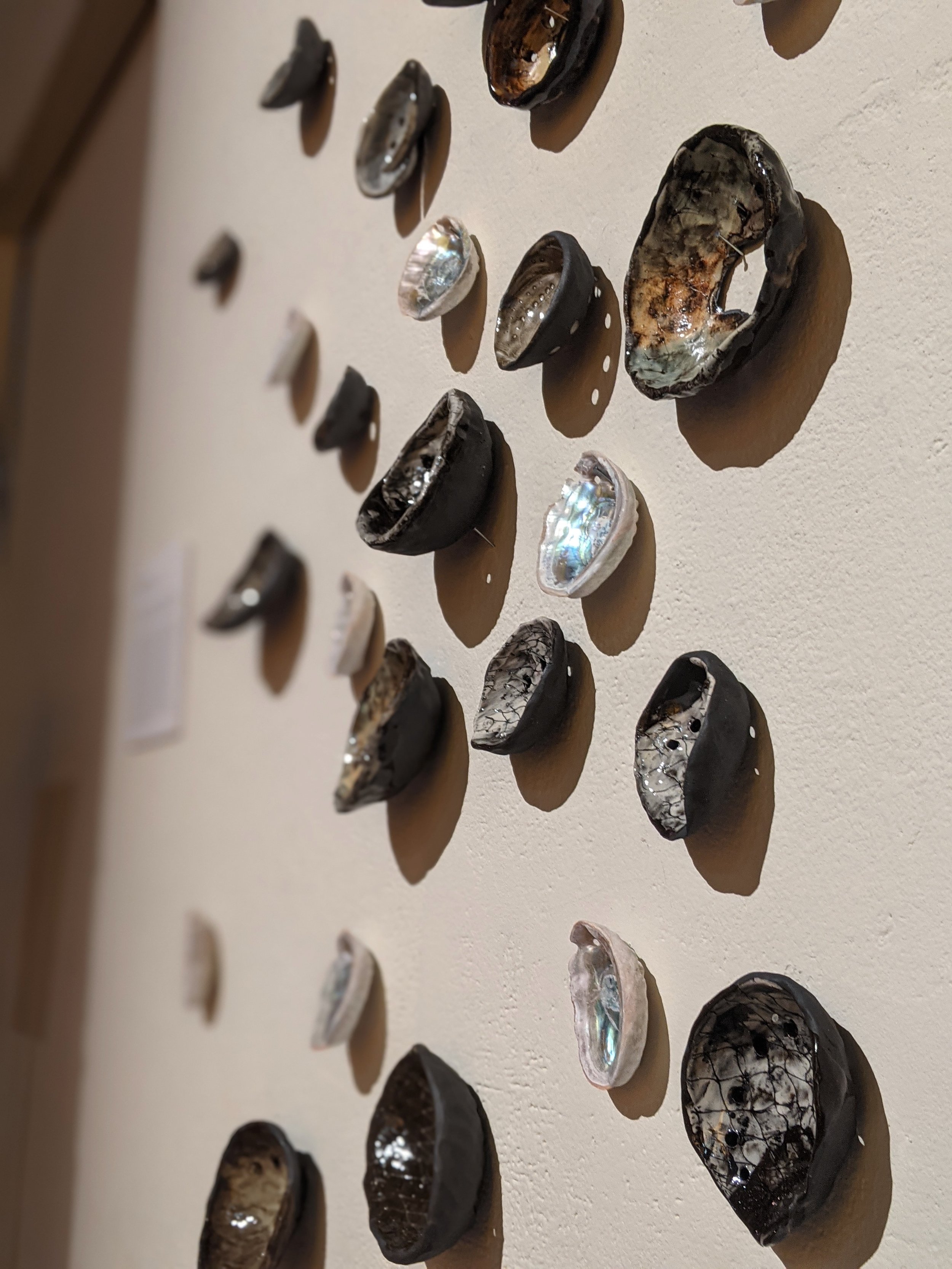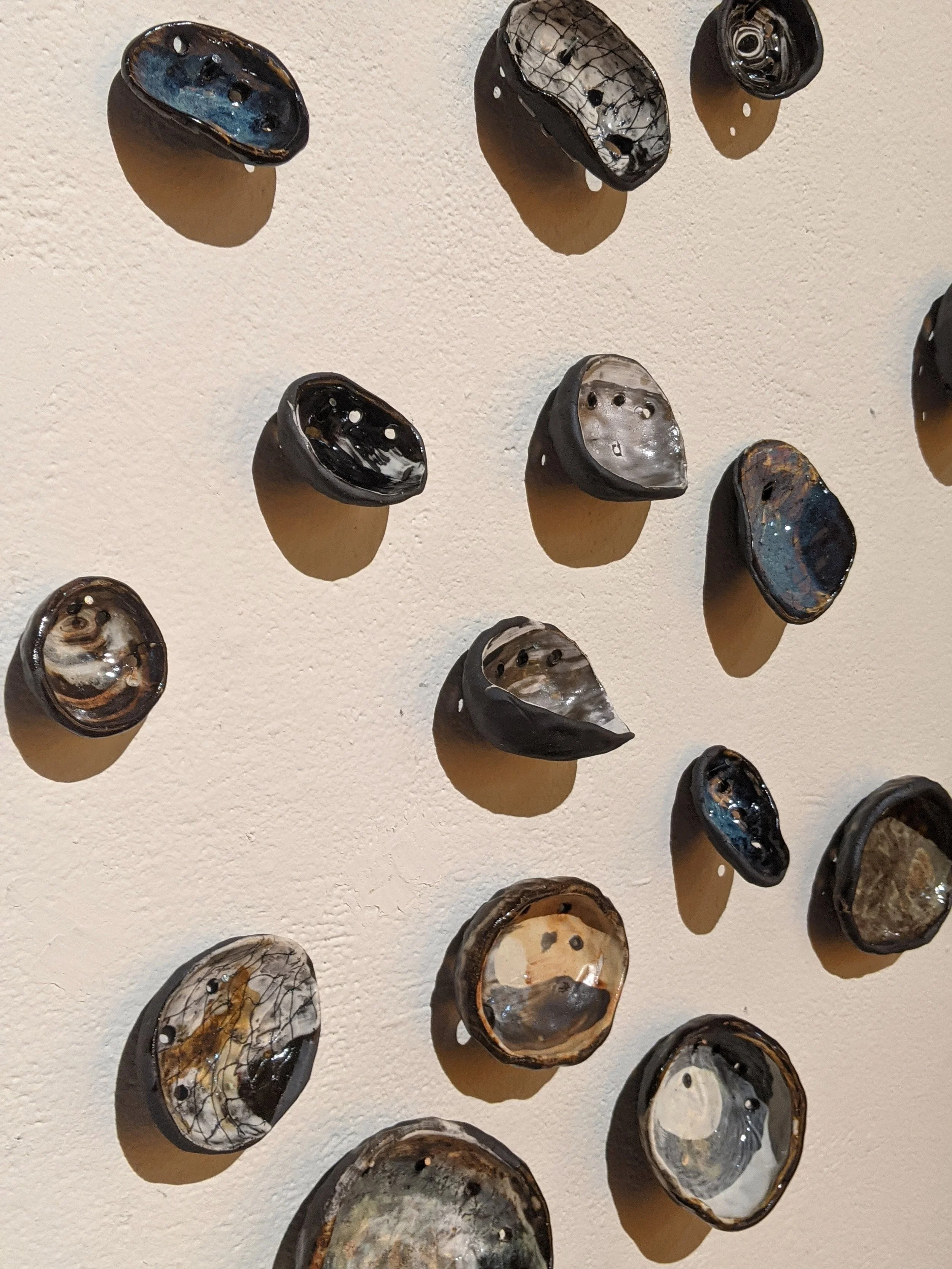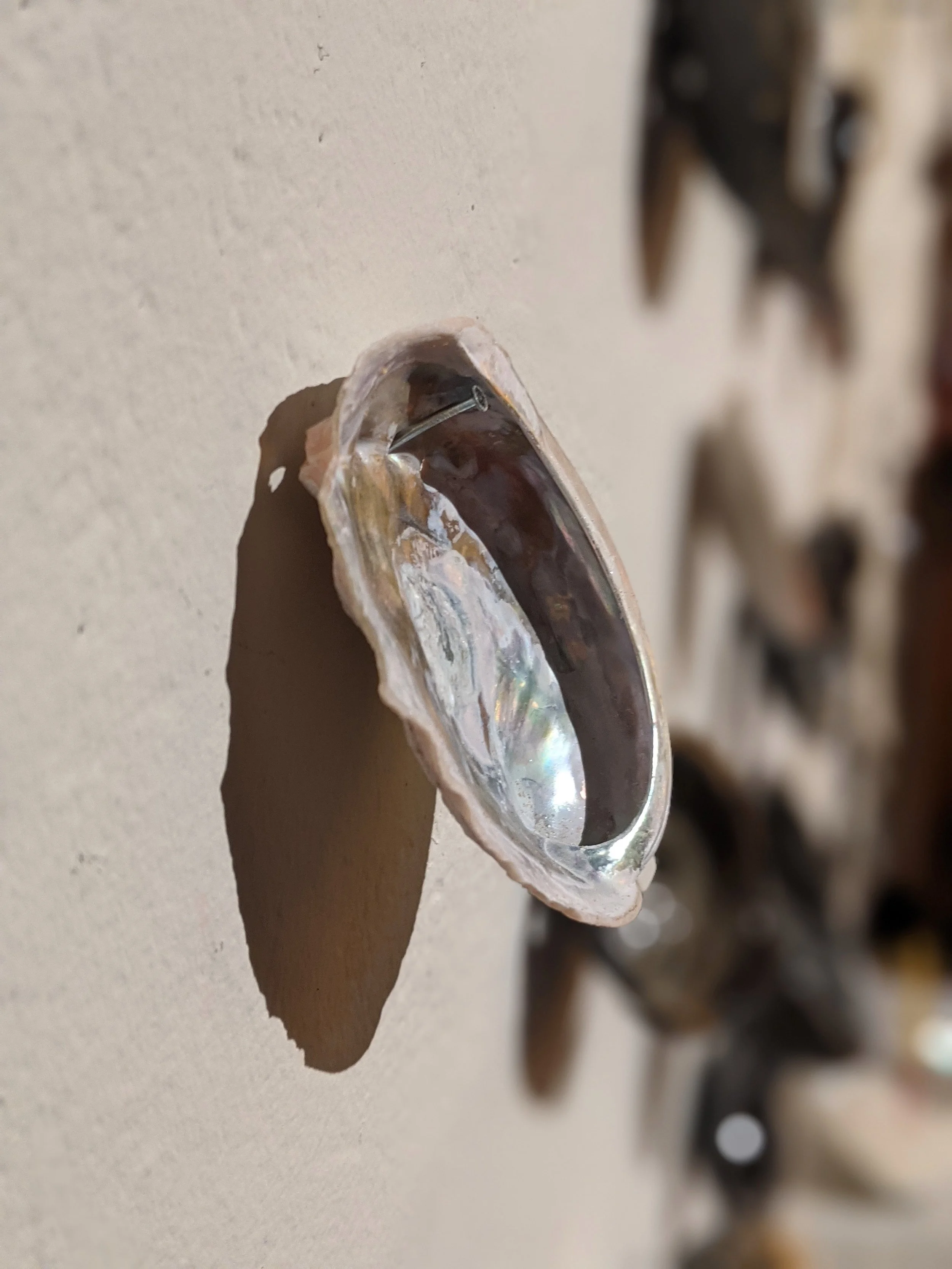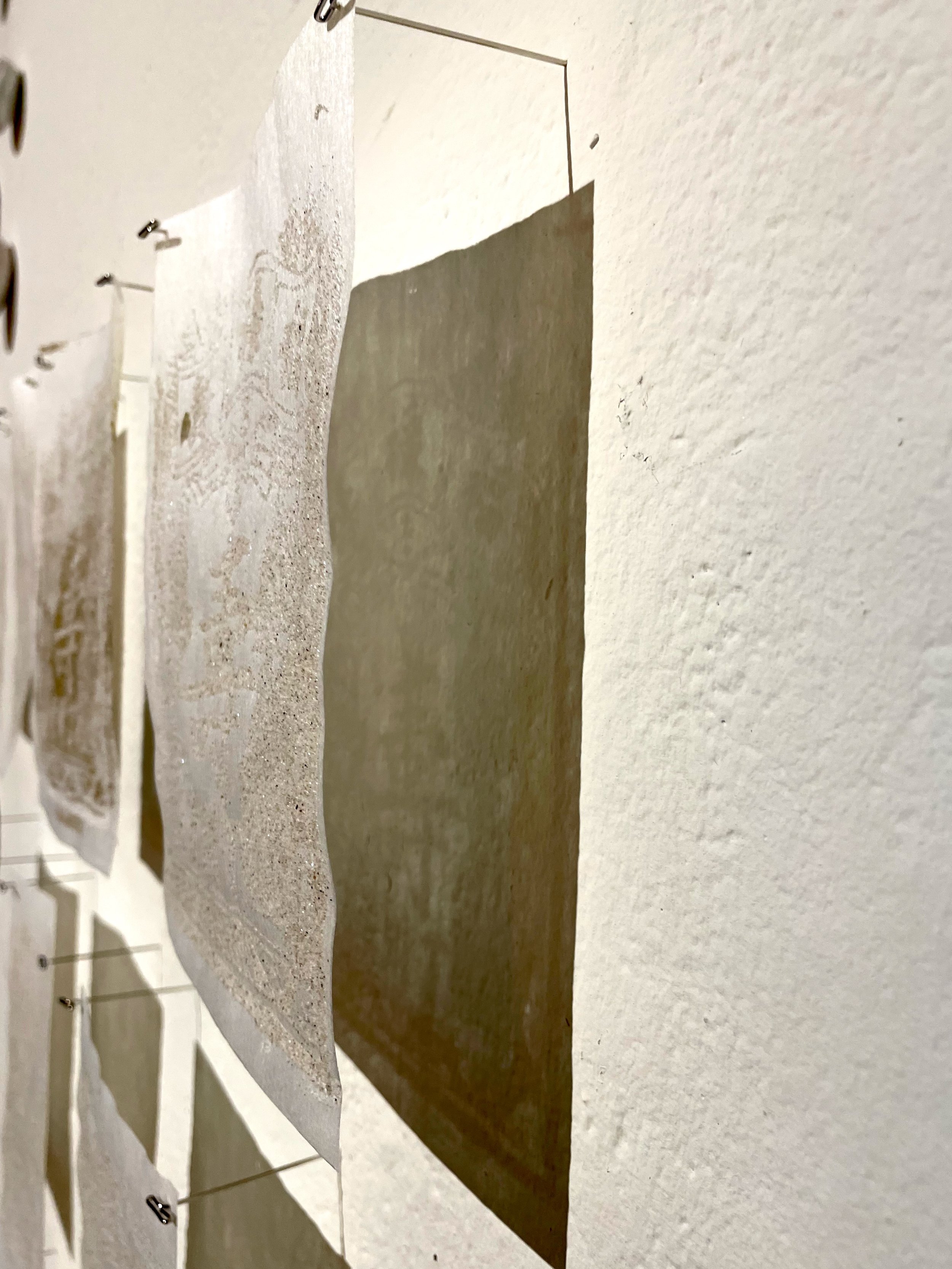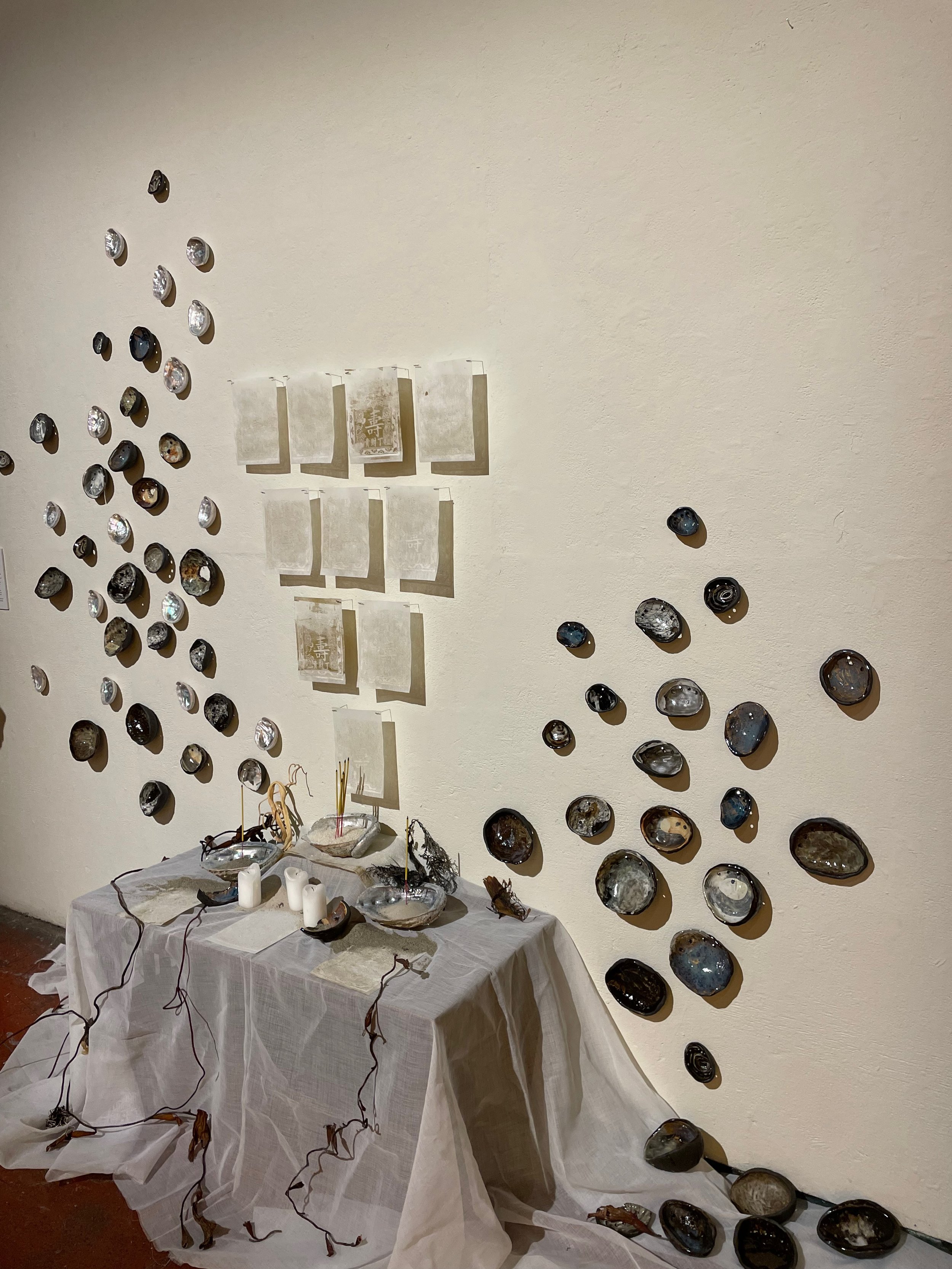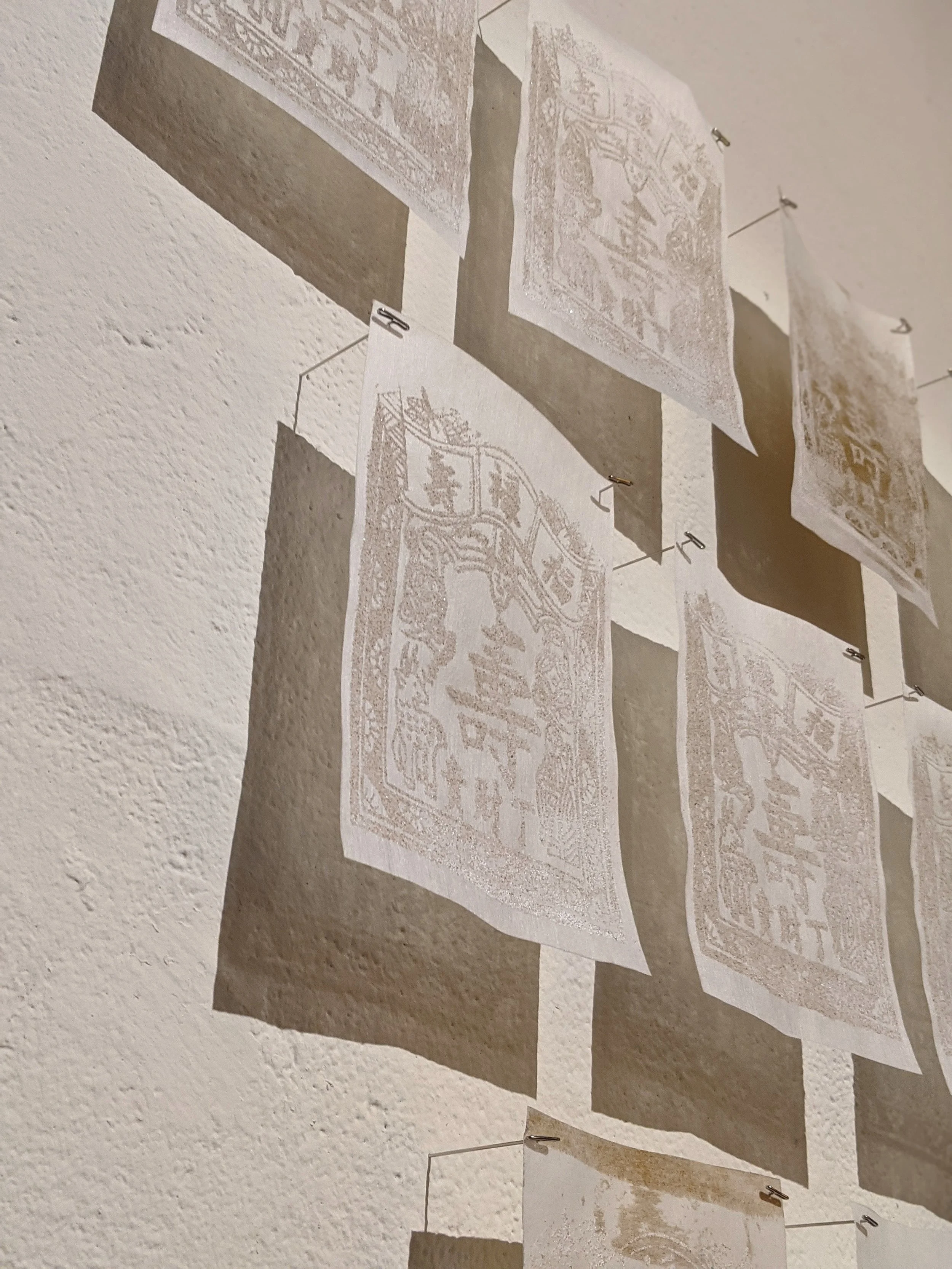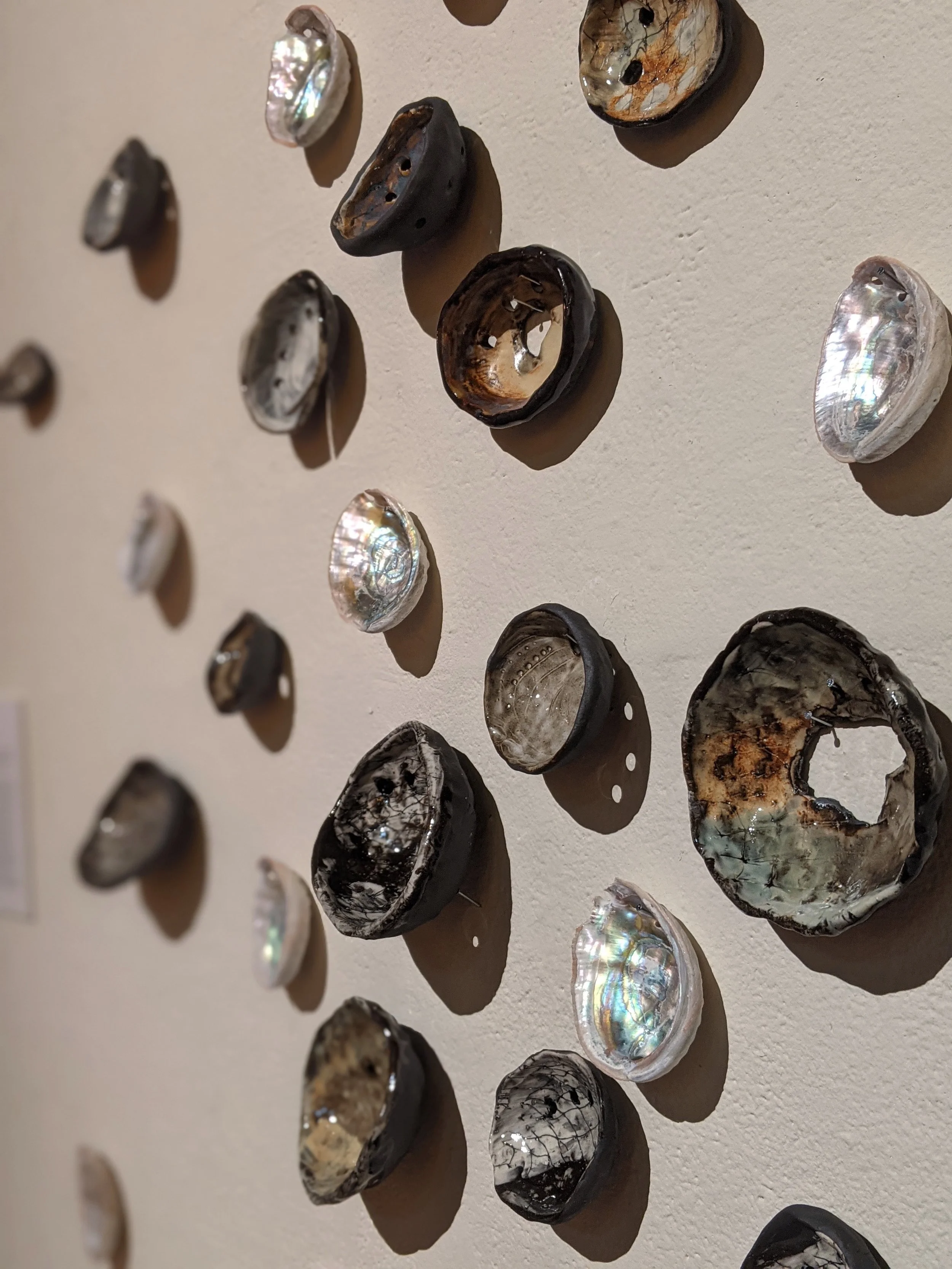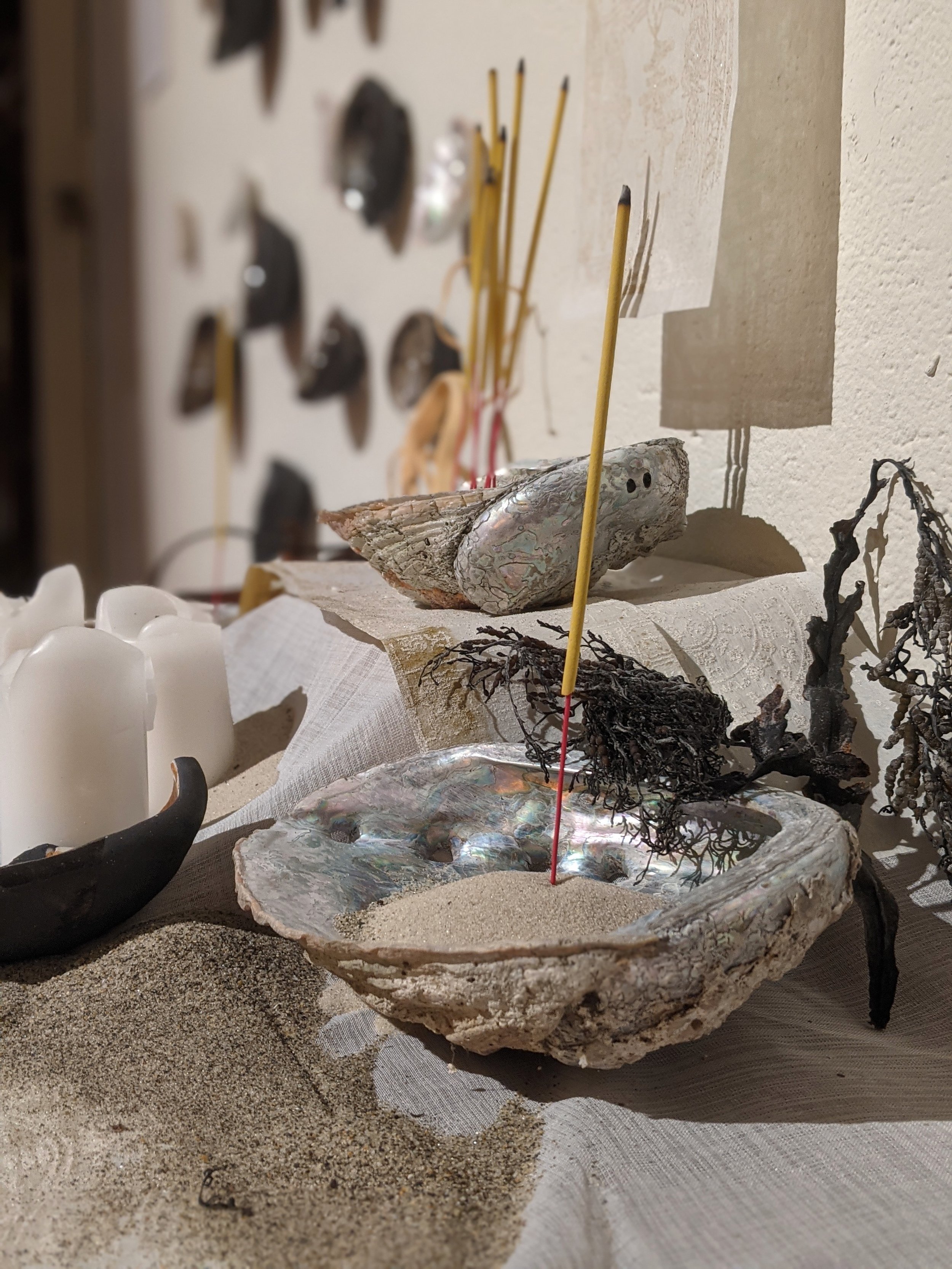
鲍鱼/bàoyú
鲍鱼/bàoyú
2021
ceramic stoneware, abalone shell, sand, rice paper, dried seaweed
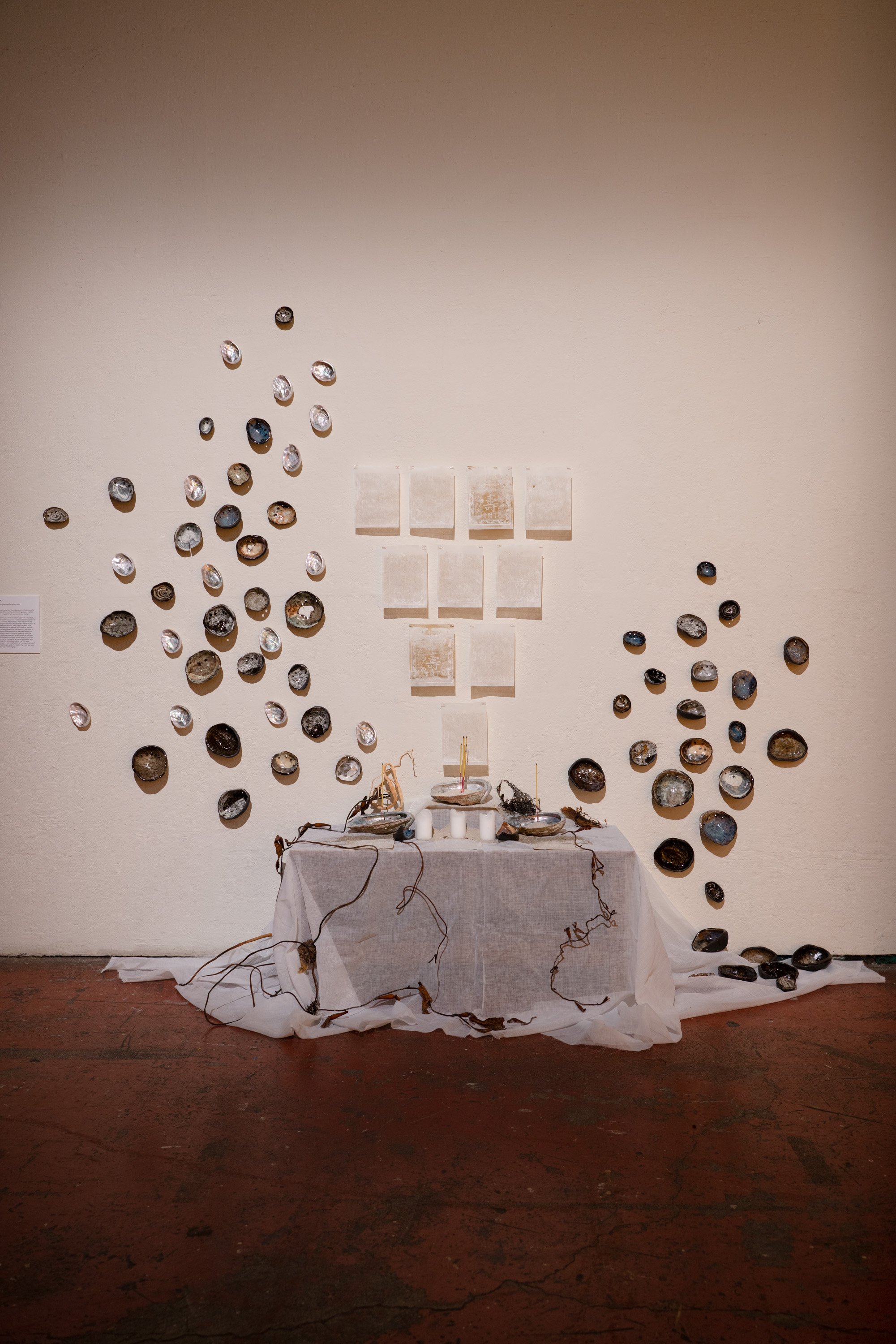
This altar seeks to recall the earliest Chinese ancestors in California who sustained themselves and their families by harvesting abalone from the sea during California’s early settlement period and Gold Rush era.
The abalone shells, serving as both environmental and cultural artifact, hold offerings for the countless unnamed ancestors who immigrated and labored in the mines, railroads, and shorelines. While the labor of the Chinese and other groups of imported labor made the industrialization of California possible, their contributions, lives, and stories were never recorded. The calcified remnants of the soft, resilient bodies they once protected serve as fragile evidence of the lives they once sustained, a naturally occurring record of the thousands of lives lived beyond our timeline, their names lost to history. The small breathing holes also indicate the abalone shell as an imperfect vessel, capable of only ever being able to partially contain its contents, setting loose the rest. Joss paper, burned as offerings to the dead, is reimagined embedded with sand from the shoreline sites where they used to live. This work acknowledges their presence and contributions to future generations of Chinese diaspora in California in spite of centuries of erasure, and seeks to assert dignity, presence, and belonging.
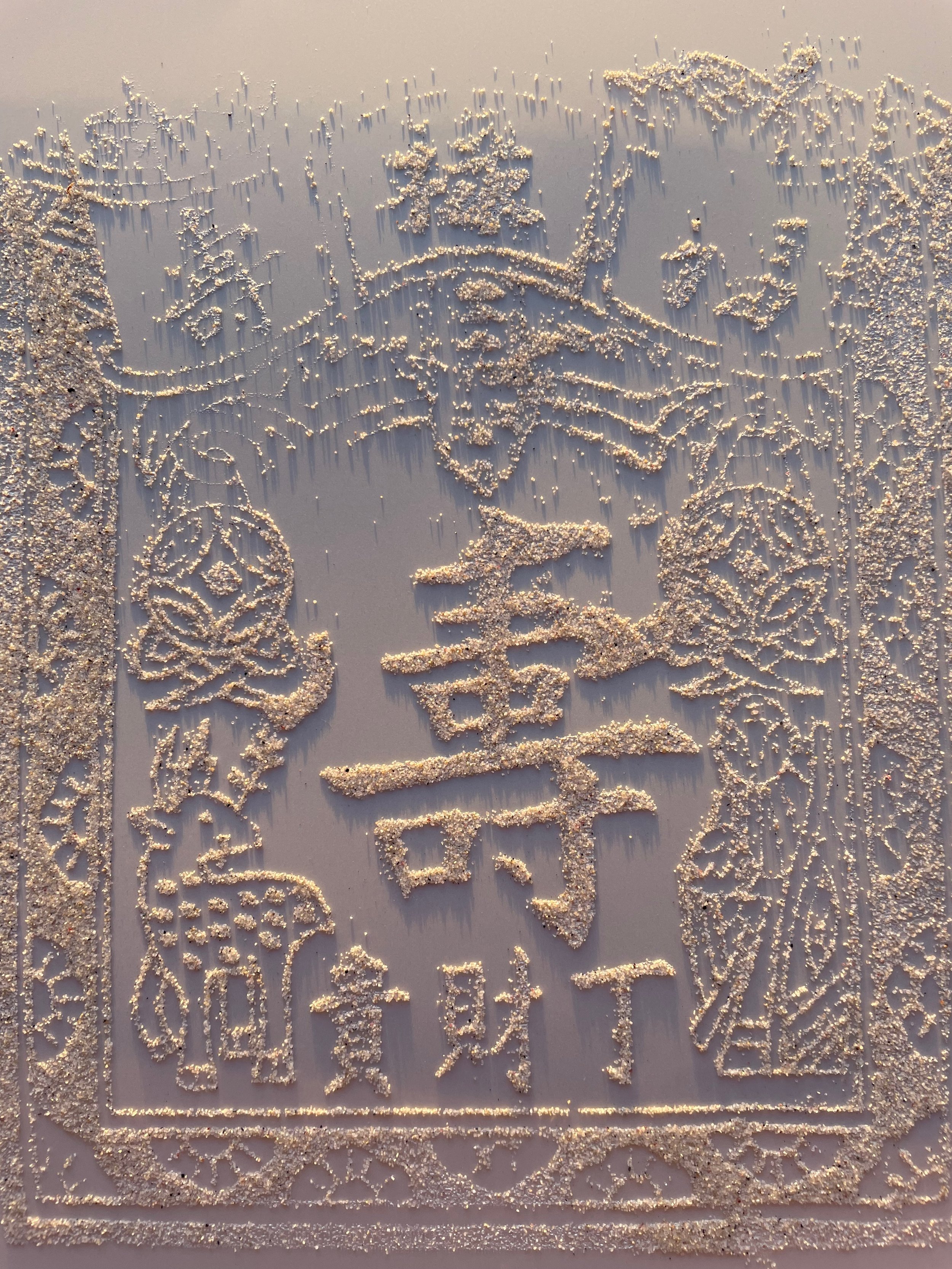
Sand gathered from beaches near fishing camps in the Monterey Bay printed in the style of joss paper, ancestral money traditionally burned as offerings for the dead.
Below, handbuilt abalone shell details.
